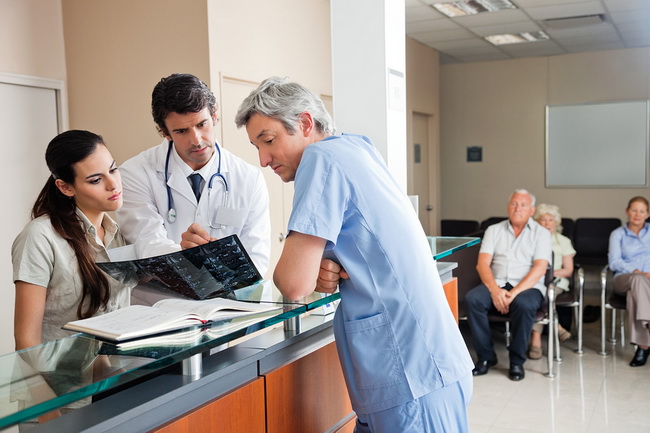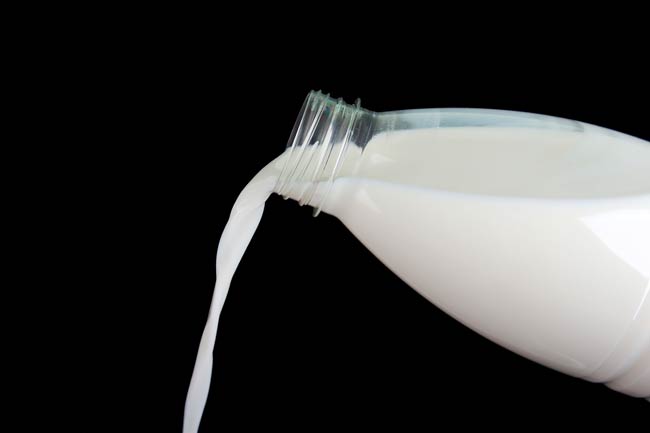- Make It Yourself Lavender Heart-Shaped Bath Bombs!
- 20 Things You Never Knew About “Down There”
- 12 Best Foods For Those Suffering From Arthritis Pain
- 12 Personal Hygiene Mistakes Almost Everyone Makes (Mom Never Told You About #4!)
- 15 Medicinal Plants And Herbs From The Cherokee People
- 12 Mind-Blowing Benefits Of Drinking Coconut Water During Pregnancy
- 12 Outstanding Winter Foods That Won’t Fatten You Up Like A Christmas Turkey
12 Things Most People Think Are Safe Or Healthy, But Aren’t (Even Your Doctor!)

Photo credit: bigstock.com
There are several things in life that you can count on 100 percent: the loyalty of your dog, a mother’s love and that the Rolling Stones will continue to do concerts until they drop dead.
Other things, well … those are more open to interpretation.
However, some things have a reputation of being safe or healthy, but they actually aren’t. How these things got this reputation remains unclear. Whether it was simply clever marketing, a misunderstanding, bad science, poor education, or perhaps just an old wives tale, the truth is that there are numerous things in this life that we take for granted as safe or healthy when they actually aren’t.
In fact, your doctor might even have told you that some of these things are completely safe when they aren’t. Ever have your doctor recommend a flu shot? We rest our case.
Want to know more? Keep reading and find out the top 12 things almost everyone believes are healthy or completely safe but are anything but.
1. Aspirin
One of the most common pieces of advice you will hear from doctors, especially if you are over 40, is to take a low dose of aspirin each day. They tell you that doing this will thin the blood, preventing blood clots, stroke, or heart attack. Seems to make sense, until you learn that doing this can also trigger internal bleeding. A lot of it. In one large case study, which involved more than 10,000 people, a low dose of aspirin each day did prevent 46 of these subjects from dying over the 10-year study, it’s true. However, there were another 49 people who suffered from major internal bleeding. Still another 117 subjects had less severe internal bleeding. Another thing your doctor will not tell you is that aspirin therapy doesn’t work for everyone. Some people have platelets that are super resistant to aspirin, so taking aspirin won’t thin their blood. Think twice before you submit to aspirin therapy.
Continue to Page 2

Photo credit: bigstock
2. Mammograms
Mammograms are not as safe as most women are lead to believe. Don’t forget that mammograms are a type of X-ray, which means they put radiation through the breast. Anytime you expose yourself to radiation, you increase your risk of cancer. Never submit to a mammogram unless it is vital you have one and there are no infrared thermography units available.
3. Not All Prescriptions Are Safe
You might be thinking this one is a no-brainer, right? But we aren’t talking about the typical problems some people have with drugs or antibiotics. Let’s talk about the almost 2.3 million Americans who currently have type 2 diabetes, and how those numbers keep rising every year. Could it be that some of the most commonly prescribed drugs, such as antidepressants, are behind this? Seems unlikely, until you consider that in 2011, there were more than 46 million prescriptions written for antidepressants. Researchers from the University of Southampton found that subjects who consumed two of the most common types of antidepressants, tricyclic and SSRIs, were twice as likely to develop type 2 diabetes. Although this study was done in 2013, the truth is that doctors have been aware of this since at least 2008. By the way, doctors also know that studies have shown that some of the most common drugs given to children for ADHD triple their risk of developing diabetes. Think about that one.
4. Fluoride
Although there has been a great deal of information floating around the Internet, some people still don’t get it. Why is it that the Environmental Protection Agency lists fluoride as a neurotoxin, but they allow cities to put it in the municipal water supply? Even toothpastes with small amounts of fluoride have warning labels that state that if children under 5 should swallow anything larger than a pea-sized piece of toothpaste, parents should seek medical attention immediately? They usually even state that if adults swallow too much toothpaste then you should call a poison control center. Why would we need to do that if fluoride was so safe? Avoid this in all its forms for improved health.
5. Microwaves
We know you love your microwave. It’s convenient, and it works fast. However, did you know that once you microwave food it becomes irradiated? This means that your “healthy” meal is now toxic. The intense heat of microwave ovens causes most foods to lose most of their vitamins and enzymes. They also lose most of their molecular structure, and therefore, their ability to contribute to your body’s metabolic processes. Also, if you put your food in those microwave-safe plastic containers, you are putting all the chemicals that are in the plastic into your food. Avoid using microwaves. They are not as safe as you have been told.
6. Early Detection Does Not Always Save Lives
One of the things that you hear is that early detection of breast cancer can save your life. What they don’t tell you is that this isn’t always true. At its very earliest stage, it can be difficult even for the most experienced doctor to tell if those mutated cells are going to be benign or malignant. Cancer treatment, however, is big business, so is it any wonder doctors will advise you to have surgery, chemo, radiation, and reconstruction at the very first sign that there is anything wrong? The most common misdiagnosis is what doctors call DCIS, or ductal carcinoma in situ. Although they try to scare you with the “carcinoma” word, this isn’t really cancer. These are nothing more than mutated cells and they don’t always turn cancerous. Consider getting several opinions and giving lots of thought before making any decisions if you should get a diagnosis of cancer.
Continue to Page 3

Photo credit: bigstock
7. Milk
Milk doesn’t do the body as much “good” as advertisers would have you believe. As long as milk is organic and comes from grass fed, organic cows, there is no problem with it; however, most milk sold today is loaded with antibiotics and growth hormones, which definitely does not do the body good. Buy your milk, and milk products such as cheese and yogurt, from grass fed, organic cows.
8. Soy
Although most people believe that soy is healthy, it really isn’t, except for fermented soy. Even then, you should know that about 90 percent of the soy sold in America is a GMO product. Most soy foods are terribly unhealthy, such as soy milk, soy cheese, and even some brands of tofu. GMO, unfermented soy causes digestion problems, heart disease, hormonal imbalance, and even cancer. Never feed infants and young children soy products and always be aware of the kinds of soy you are consuming.
9. White Bread
Wheat, at one time, was a healthy grain. That was many generations ago. The recent nutritional value of wheat has declined, to say the least. The current factory processing of wheat, the bleaching process to turn wheat the white color we know today, the added preservatives that greatly increase shelf life, as well as the added artificial ingredients, have all turned white bread into something that should be avoided at all costs. This vast change in wheat has caused many people to develop a sensitivity to gluten. Eat whole grains and avoid white bread.
10. Smoothies
Smoothies you make at home, with whole vegetables or fruits and protein powders, are good for you, no doubt about it. But most people pick up a smoothie while they are away from home, thinking that it will be “just as good.” Beware, friends! Most commercially-made smoothies have added sweeteners (such as agave syrup) and nothing but a great deal of fruit. Too much sugar can lead to adrenaline rushes, insulin resistance, and a serious spike in your blood sugar, which leaves you feeling good for about 2 hours, then crashes quickly, leaving you hungry for more. Be careful when purchasing smoothies in commercial locations.
11. Margarine
Remember when margarine was touted as the best thing since sliced bread? Everyone booed at butter and margarine became king of the dairy aisle? That was nothing more than a slick marketing scam, friends. Butter is the absolute best spread for your health. Margarine is full of trans-fats and is mostly made up of GMO vegetable oils and artificial everything else, including color, flavor, and preservatives. Talk about a chemical cocktail! Go back to pure, natural butter and savor that wonderful flavor right from Mother Nature herself.
READ ALSO: 10 Things You Think Are Healthy But Really Aren’t (#4 Even Surprised Us!)
12. Breakfast Cereals and Most Granolas
Most people have heard the news that breakfast cereal is not the healthy fare we have been told it is. This means many people have tried to eat more “natural” cereals, such as granola. Unfortunately, this is just another marketing scam, as most granolas are no better than the breakfast cereals we are trying to avoid. Read the label carefully and you might find that your healthy, “all natural” granola is filled with sugarcoated raisins, tons of honey (which is probably nothing more than GMO high fructose corn syrup with a drop of pollen in it), preservatives, and even artificial colors. Not nearly as natural as you were lead to believe, now, is it? There are healthy cereals out there, you just need to read the labels and be very selective.
References:

































Leah7453
Mar 2, 2016 at 12:54 am
Vaccines should be #1. Probably 95% of the population remains convinced they’re safe and effective when the exact opposite is true. They do nothing but harm and quite often, kill. Most misleading but unfortunately effective marketing campaign of all time.
Vaccines did not save us:
https://childhealthsafety.wordpress.com/graphs/